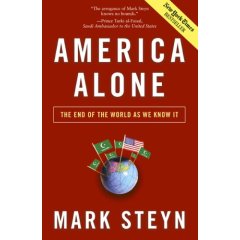New Poll: The Religious Wright
Senator Barack Obama gave a speech in Philadelphia yesterday on race issues. The speech was precipitated by connections being drawn between Obama and his black liberation theology pastor of 20 years, Rev. Jeremiah Wright.
Many people have been turning to the Internet to view statements by his longtime pastor, the Rev. Jeremiah Wright, who suggested in one sermon that the United States brought the Sept. 11 terrorist attacks on itself and in another said blacks should damn America for continuing to mistreat them.
Obama rejected Wright’s divisive statements but still embraced the man who brought him to Christianity, officiated at his wedding, baptized his two daughters and inspired the title of his book "The Audacity of Hope."
Not disown, perhaps, but much of that association has been scrubbed from Obama’s website and elsewhere on the Internet. And that’s begging the question; are Rev. Wright’s view extreme for black liberation theology? See here for Mark Olsen’s look into this. If they are extreme, what does it say about the candidate who supports that church by his attendance and, likely, his money? If they aren’t extreme, what does it say about the theology, in addition to the candidate? [UPDATE: James Taranto reports that they may be more mainstream than some would like to think.]
So then, are a candidate’s pastor’s views fair game for consideration on the campaign trail? Before you answer, consider how the occasional words of Pat Robertson or Jerry Falwell have been used to paint evangelical Christians with a broad brush, both in the media and in the blogs. But Falwell wasn’t, and Robertson isn’t, the pastor of the vast majority of those people for whom the Left likes to suggest they speak for. Obama, on the other hand, attends by personal choice. If the Left wants to make Robertson the spokesman for millions who may have not heard him speak, doesn’t that standard then apply to someone with a 20-year, close association with a presidential candidate?
Or is there one standard for the Religious Right, and another for the Religious Wright?
Please vote in the poll on the right; do you think it’s fair game?
[tags]Barack Obama,Rev. Jeremiah Wright,race issues,Jerry Falwell,Pat Robertson,Religious Right,Christianity[/tags]

 The subtitle of Steyn’s book is The end of the world as we know it. On the cover we see a globe, dotted with flags of Islam, and one lonely American flag. The front cover recommendation quote is, “The arrogance of Mark Steyn knows no bounds.” – Prince Turki al-Faisal, Saudi Ambassador to the United States.
The subtitle of Steyn’s book is The end of the world as we know it. On the cover we see a globe, dotted with flags of Islam, and one lonely American flag. The front cover recommendation quote is, “The arrogance of Mark Steyn knows no bounds.” – Prince Turki al-Faisal, Saudi Ambassador to the United States.